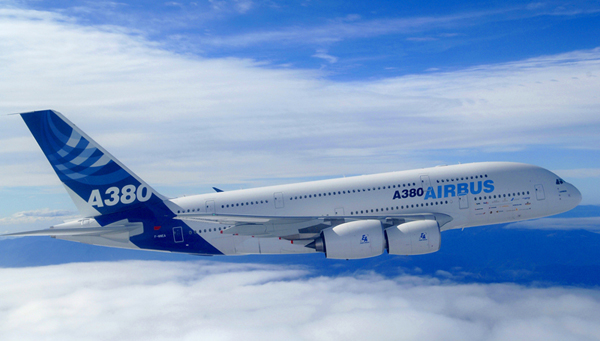Singapore Airlines firms up order for more A380s and A350 XWBs

Repeat order shows great endorsement of Airbus products
Singapore Airlines (SIA) has firmed up an order for 25 more widebody aircraft from Airbus, comprising five of the world’s most efficient, high capacity aircraft, the A380, and 20 A350-900s. The deal was completed in 2012 and follows an agreement in October 2012.
Singapore Airlines has placed three consecutive orders for the A380, making it the second largest customer of the A380, and now has 19 aircraft in service. In the mid-size category, the new A350 XWB order sees the airline double its backlog for the all-new aircraft to 40. The A350-900s will be used by the airline on both medium and long haul routes.
“This second repeat order from one of the largest A380 operators today is a great endorsement” said John Leahy, Chief Operating Officer, Customers, Airbus. “We’re also delighted that Singapore Airlines are demonstrating equal confidence in the A350. With both these aircraft, Singapore Airlines will have the most modern, most comfortable and most efficient fleet the market can offer.”
Since 2006 the A380 is registering repeat orders by satisfied customers every year, bringing the total orderbook today to 262 from 20 customers. The A350 XWB gathered 582 orders from 34 customers.
Since first entering service with Singapore Airlines in 2007, the A380 has joined the fleets of nine world class carriers. Typically seating 525 passengers in three classes, the aircraft is capable of flying 8,500 nautical miles or 15,700 kilometres non-stop, carrying more people at lower cost and with less impact on the environment. The spacious, quiet cabin and smooth ride have made the A380 a firm favourite with passengers, resulting in higher load factors wherever it flies.
The A350 XWB (Xtra Wide-Body) is an all-new mid-size long range product line comprising three versions and seating between 270 and 350 passengers in typical three-class layouts. The new Family will bring a step change in efficiency compared with existing aircraft in this size category, using 25 per cent less fuel and providing an equivalent reduction in CO2 emissions. Entry into service is scheduled for 2014.
